Cabo Delgado court begins sale of assets of former cotton giant Plexus Mozambique
Mozambique: How poor hydraulic management hinders crop production in Chókwè
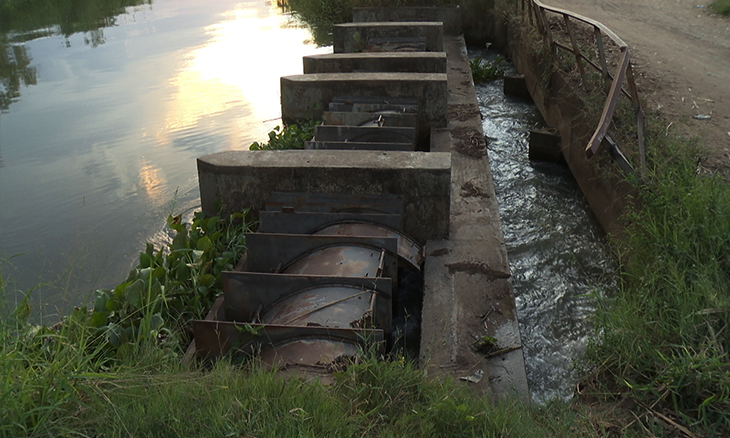
Photo: O País
Producers covered by the Chókwè irrigation system, Gaza province, could theoretically produce 140,000 tons of rice per harvest, but only make 15,000 tons because of problems in irrigation management.
The Hidráulica de Chókwè Empresa Pública( (HICEP) is not doing its job properly, supposedly because it lacks funds, but the State Holdings Management Institute (IGEPE) says that the problem will be solved later this month.
Producers in the area, once considered the country’s breadbasket, report new problems every year, without the old ones ever being resolved. Last year, the rice marketing problem was not resolved. This year, water management has been poorly managed by state-owned Chókwè Hydraulics (HICEP).
Water circulation channels have today become forests because HICEP hasn’t carried out clearing for a few years, supposedly because it doesn’t have the money to pay for it.
At the moment, producers in Chókwè could be farming more than 20,000 hectares, but, because the water does not circulate properly, more than 15,000 hectares of land are unused.
In terms of production, “we should be producing 140,000 tonnes of rice, but now we are at around 15,000, because we only use three of the 20,000 hectares we have here. The same area could be used in the second season to produce corn. We would make around 70,000 tons, but we are making just seven,” says Daniel Dimas, president of the Baixo Limpopo Producers Association.
Dimas senses the pain of associates in general, but he feels worst the pain of investment losses due to the failure of one part of the chain. Private companies make the investment and yet the state, in the shape of the company responsible for irrigation, does not play its role.
Daniel prepared more than 10 hectares to sow beans, but the water never arrived and the weeds came back. “We should have sown beans in March, but we have not done so because we don’t have water”.
He is not alone. Another farmer ploughed 16-hectares to grow cabbage. The dream of cabbages growing on his plot changed to the disappointment of seeing his 76,000 meticais investment evaporate.
But all situations are not quite the same. For Jaime Matavel, a young farmer who still dreams of becoming a reference in the national market, the biggest stumbling block apart from lack of money to invest is the lack of support from the state.
Jaime has a total area of 2.5 hectares, but is now exploiting just one hectare, because, after the rains, his fields were flooded, and the waters have nowhere to drain away. Why? Because the ditches that should drain the fields are clogged with vegetation.
“I am only producing in one hectare, because the others are flooded, and that saps my strength. Regardless, when the time comes for the water fee, we have to pay it,” says the young man as he leaves his machamba with his daughter on the crossbar the bicycle.
The root of the problem really lies in the relationship with the company that should be responsible for all this work. As a rule, farmers have a specific period to pay what they call a water fee. However, they have now joined forces to pay costs connected with the machinery that does this work.
In fact, the machine is working right now, because the farmers have collected money and invested in the public company [HICEP] that should do this by itself. “We made an agreement with the company that provides the services. We paid for the fuel and the oil and the machinery is already working,” Dimas explains.
The company in question is Chókwè Hydraulics, a public company managed by the State Holdings Management Institute (IGEPE). Speaking by telephone, administrator Raimundo Matule told ‘O Pais’ that he was aware of the problem, but straightaway blamed the treasury.
“One of the difficulties is that only now has the [state[ budget started to be implemented. The transfers from the state have not yet been made in full. There are conjunctural problems,” he considers.
In any case, IGEPE promises that a solution will soon be forthcoming. “From the information I have, it will be this month – towards the beginning of May,” Matule says. Funds from the National Fund for Sustainable Development will pass through the IGEPE under the supervision of the Ministry of Agriculture and Rural Development, headed by Minister Celso Correia.
The government was confronted with this situation only recently. Correia said he was aware of the problem, but explained that it was occurring not only in Chókwè, and that any solution must be able to cover similar production schemes throughout the country.
By Afonso Chavo
ALSO READ: Chókwè irrigation opens up to private investors


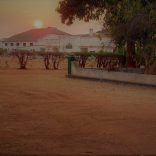

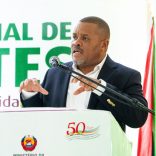
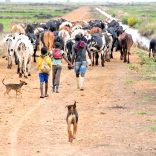

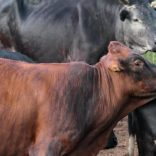




Leave a Reply
Be the First to Comment!
You must be logged in to post a comment.
You must be logged in to post a comment.